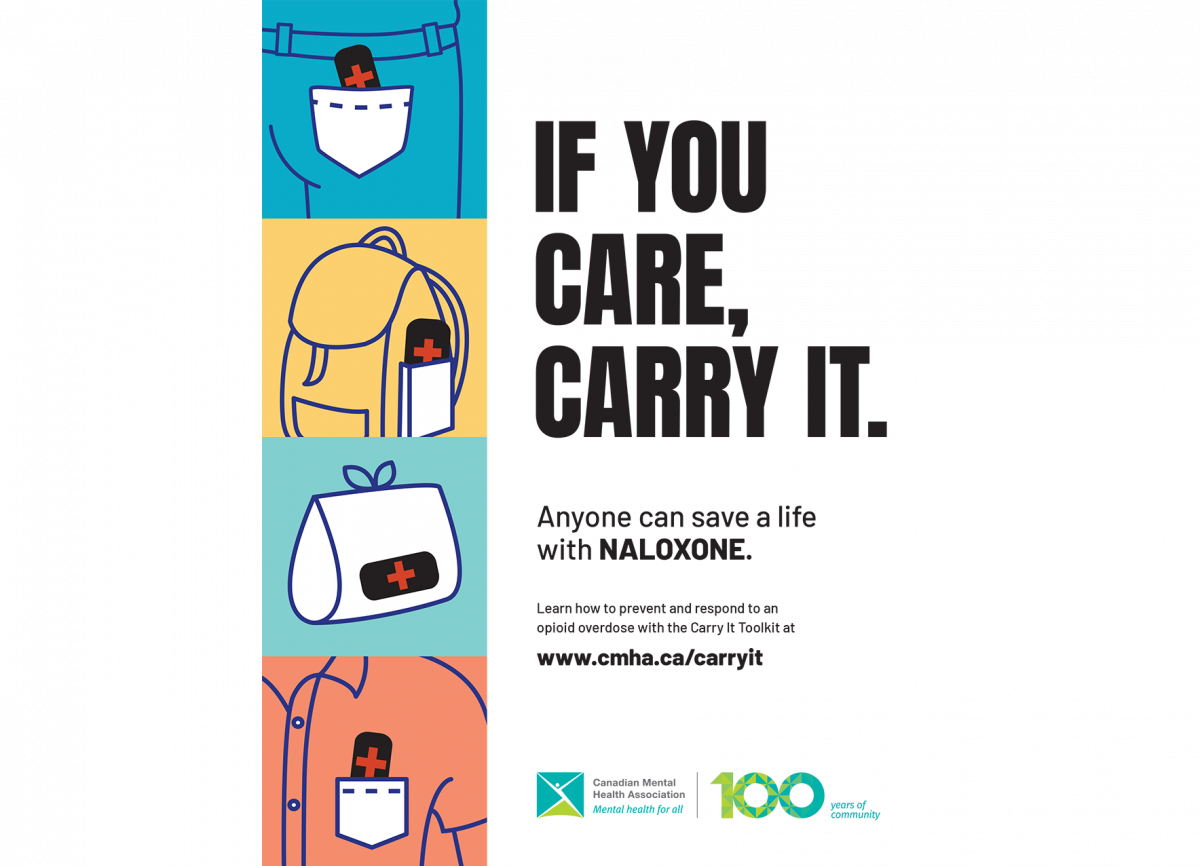
Contributed by the Canadian News Wire Service
Ahead of International Overdose Awareness Day (IOAD) on August 31st, the Canadian Mental Health Association (CMHA) launched the "Carry It Toolkit", an opioid overdose education campaign aimed at Canadian postsecondary students.
The resources support educational institutions across Canada in preventing and responding to an opioid overdose on campus.
The opioid crisis in Canada is real and growing. Youth aged 15-24 have the second fastest-growing rates of hospitalizations from opioid harms in Canada.
According to a new study from Angus Reid commissioned on behalf of CMHA, substance use is very common on campus, with 81 percent of Canadians saying that they have witnessed someone take recreational drugs at postsecondary school.
Despite this, a majority (53 percent) of Canadians said they would not know how to respond if they encountered someone experiencing an overdose.
The toolkit provides practical tools and resources to educate students, administrators, faculty and staff on how to identify and respond to an overdose when every second matters, as well as a sample protocol for making naloxone available on campus, and for how to use, train, store and get access to naloxone.
In Ontario, Quebec and the Northwest Territories, naloxone kits, in both the injectable form and NARCAN Nasal Spray, can be picked up free of charge, without identification, at almost any pharmacy.
"If you care, we're asking you to carry it," says Fardous Hosseiny, interim CEO of the CMHA. "A compassionate, effective response to opioid overdose is multifaceted, and ready access to naloxone where young people live, work and study is essential."
Back-to-school is a major time of transitions for young people, with increased stress and academic and social pressures. It's important for students experiencing school-related stress to have supportive relationships, emotional and academic support and access to on-campus mental health resources. Many Canadians (88 percent) believe parents should be concerned about their kids' exposure to recreational drugs while attending postsecondary institutions, but access to the right services and support networks can help them cope with pressure in healthy ways.
"As our children head back to school, we want to ensure they're in the safest environment possible," said Mark Barnes, pharmacist at Respect Rx Pharmasave in Ottawa, and a member of the Ottawa Overdose Prevention & Response Task Force. "With the prevalence of incredibly powerful synthetic opioids such as fentanyl and carfentanyl, we need to be prepared and equipped to respond efficiently. Sadly, only a few grains of these highly potent drugs can be lethal, so ensuring students are carrying a naloxone kit and are prepared to respond to an overdose can make all the difference."
The CMHA Carry It Toolkit is available at https://cmha.ca/carryit. It was developed by CMHA with an unrestricted grant from Adapt Pharma Canada Ltd., the makers of NARCAN Nasal Spray, which is a temporary antidote that can help reverse the effects of an opioid overdose.
Naloxone Hydrochloride Nasal Spray is a pure opioid antagonist indicated for emergency use to reverse known or suspected opioid overdose, as manifested by respiratory and/or severe central nervous system depression.
Naloxone Hydrochloride Nasal Spray can be administered by a bystander (non-health care professional) before emergency medical assistance becomes available, but it is not intended to be a substitute for professional medical care. Emergency medical assistance (calling 911) should be requested immediately when an opioid overdose is suspected, before administering naloxone.







